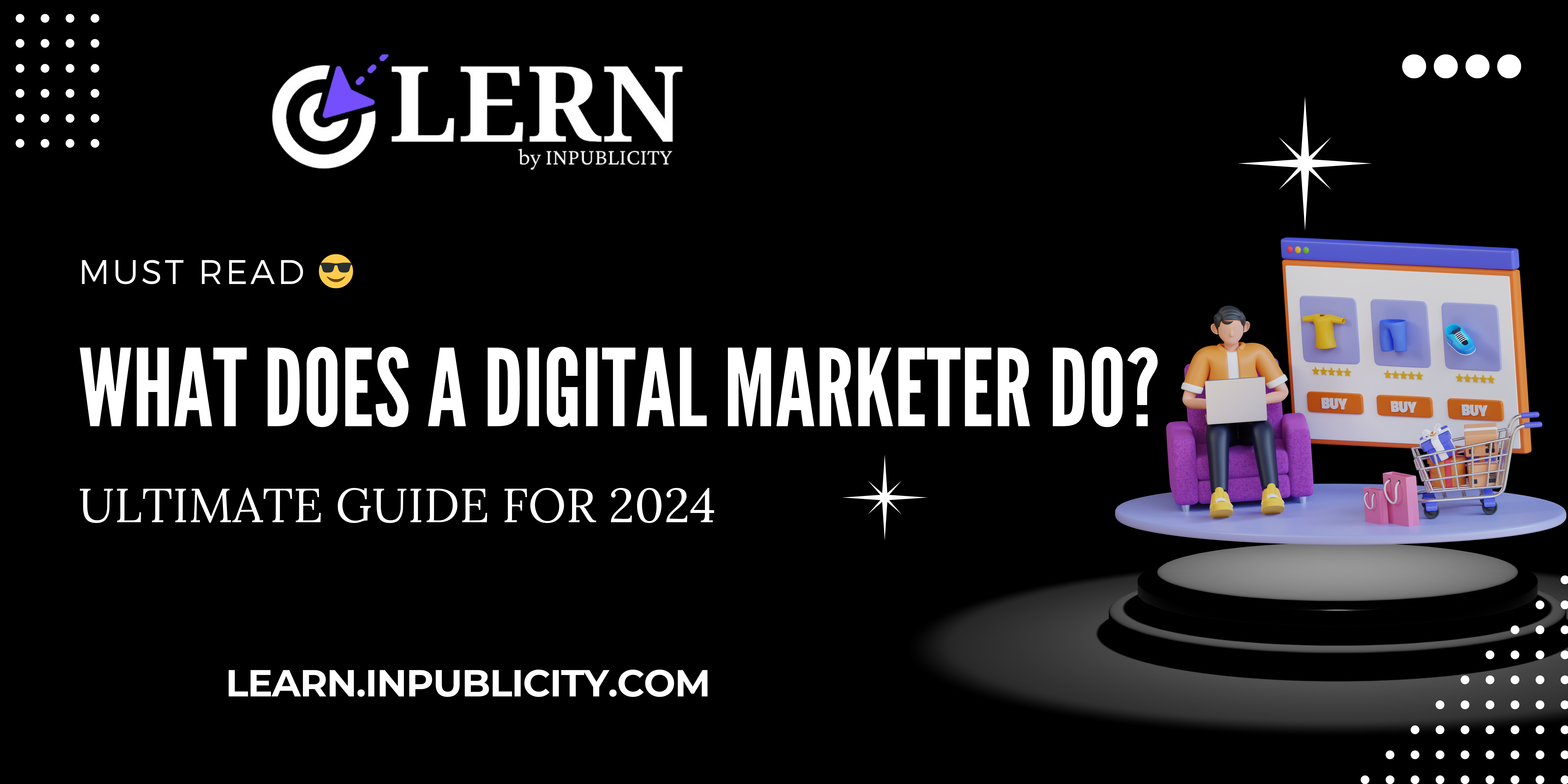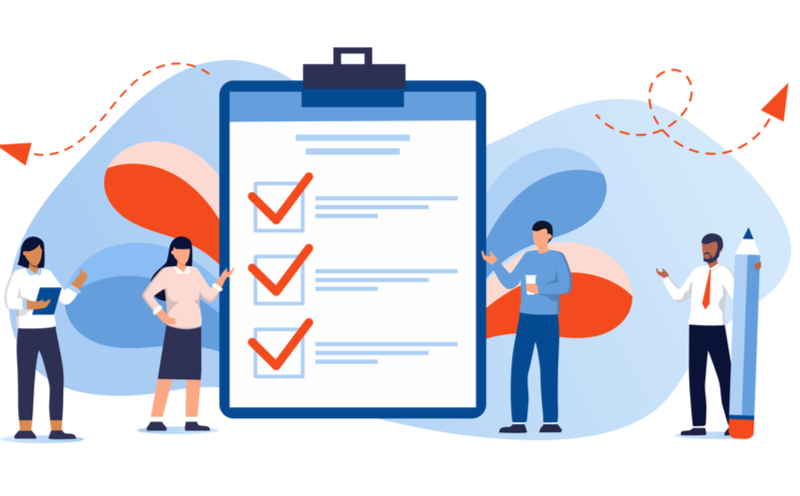The Pros and Cons of AI-Generated Content
Tue, 26 Dec 2023

Follow the stories of academics and their research expeditions

The digital world is booming, and so is the demand for digital marketers. Last year, LinkedIn found that half of the hottest marketing jobs were digital, with "digital marketing specialist" taking the crown. This trend isn't slowing down, as businesses scramble to reach a population spending more time online than ever.
But what exactly does a digital marketer do?
This post dives into the exciting world of digital marketing, exploring its key tasks and the in-demand skills you need to join this thriving field. If you're looking for a dynamic career in the heart of the digital revolution, keep reading!
The American Marketing Association defines digital marketing as “the use of digital or social channels to promote a brand or reach consumers.” This includes a variety of specialties, such as social media marketing, search engine marketing, and video marketing.
A digital marketing professional, adept at online communication, leverages the power of major digital channels like social media, search engines, and email to connect with audiences and achieve marketing goals. This versatility may be coupled with specialization in specific areas like SEO or social media marketing.

A digital marketer is responsible for reaching a company’s target audience online. To do that, they have to develop a comprehensive strategy. That strategy needs to identify the right channels and schedule campaigns for each channel.
Before they dive into a campaign, digital marketing directors, managers, and analysts start by strategizing. This entails considering revenue trends, evaluating audience engagement patterns, and monitoring online traffic. Digital marketers do this to set goals based on the strengths and weaknesses of their company’s online platforms. For instance, if a retail clothing company has a poorly performing men’s department, they might set a goal of increasing their number of male newsletter subscribers.
Digital marketing specialists do the same kind of work within their own domain. For example, an SEO specialist would set a goal to rank higher than their competitors.

The next step is to formulate a plan that will help accomplish those goals. These will usually be set by a digital marketing manager who will determine how to best reach their target audience. Then, they’ll create a calendar that details how and when to launch this campaign.
Digital marketers will then design, edit and launch each campaign. These tasks will vary by channel. For a social media manager, executing a campaign entails scheduling organic posts and creating ads within a platform’s ad manager tool. For a content marketing specialist, execution involves writing or producing content and formatting it for each platform.
Once a campaign has been executed, digital marketers will then evaluate its success. One way to do this is with key performance indicators (KPIs)—quantifiable measurements linked to specific objectives. Digital marketers need to choose the KPIs that reflect what success looks like.
For example, a digital marketer who works with multiple campaigns might use a marketing channel return-on-investment metric, which compares the revenue earned from each channel. On the other hand, a social media manager would focus more narrowly on audience building. They might use KPIs such as the number of followers or a social account’s engagement rate.

Digital marketers then communicate these results to various parties, including potential clients, marketing team members, and financial departments. Managers and analysts typically use platforms that gather and visualize data. Google Analytics, possibly the most popular of these platforms, also features advanced reporting capabilities that can create readable, actionable graphs to share with other teams.
Unlike more traditional forms of marketing, the data provided by online channels allows digital marketers to quickly improve upon their campaign results. For example, if your team creates an ad that isn’t meeting its goal for clicks or conversions, a digital marketer might tinker with the content or target different audiences to see if these metrics improve.
Digital marketers often do this with A/B testing. This involves simultaneously running two different versions of the same campaign and seeing which performs better.
Digital marketers often have to choose whether they want to specialize or be a generalist. Specialists have specific digital marketing job titles, such as:
Generalist digital marketers have a working knowledge of all of these specialties. According to StrategiCMO founder, Matt Schachter, this often makes them more useful in the long-term, as generalists can pivot as priorities shift.
Don't let the vast digital marketing skillset drown you! Newbies, start with a broad understanding, then dive deeper into your passions.
All digital marketers should have some familiarity with all of the different digital marketing channels. These include:
Digital marketing specialists should possess the following hard skills:
Bootcamps and certificate programs can teach you most or all of these skills.
Digital marketers should also possess the following soft skills:
Digital marketing salaries depend on the candidate’s experience, skills, and location. Some large companies pay six-figure salaries for high-performing digital marketers, but the typical pay range tends to be slightly more modest.
According to PayScale, entry-level digital marketing positions pay an average of $41,722 per year. But salaries are often dependent upon location and the responsibilities of the role.
Mastering online audience reach is your key to unlocking a digital marketing career. Dive into available channels and conquer their potential.
You don’t need a degree in marketing to become a digital marketer, but you do need to learn some hard skills.
Get a head start on your career launch! Use foundational coursework to identify your most-wanted digital marketing skills. Then, actively seek out opportunities to polish them and stand out from the crowd in the job market.
No paid gigs yet? No problem! Entry-level digital marketers can impress with student or personal projects. Build a user-friendly portfolio website on platforms like Squarespace or Wix and stand out from the crowd.
Aspiring digital marketers face two paths: apprenticeship or entry-level job. Apprenticeships offer structured learning under seasoned pros, but require initiative to secure. Entry-level jobs jumpstart independent work, but lack formal training. Choose wisely to build the skills you crave for your future.
Tue, 26 Dec 2023

Tue, 26 Dec 2023

Mon, 25 Dec 2023

Leave a comment